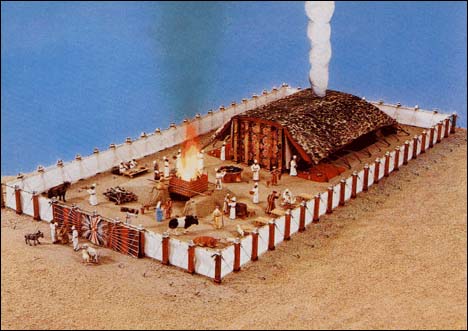|
We can read the prescribed way that the leaders of Israel were to take a census in Exodus 30:11-12. "Then the Lord said to Moses, 'When you take a census of the Israelites to count them, each one must pay the Lord a ransom for his life at the time he is counted. Then no plague will come on them when you number them.'" Here is the bottom line: God wanted His people to trust Him in all things. The small ransom required (a half shekel) was to support the service of the Tent of Meeting and became part of the Israelite worship of God. When King David made plans to take a census of the fighting men in his ranks without collecting the half shekel, Joab, the commander of the army, asked him, "Why does my lord want to do this? Why should he bring guilt on Israel?" (1 Chronicles 21:3) Joab was overruled and spent nine months and 20 days counting the troops. After receiving the report, David was conscience-stricken. "And he said to the Lord, 'I have sinned greatly in what I have done. Now, O Lord, I beg you, take away the guilt of your servant. I have done a very foolish thing.’" (2 Samuel 24:10) However, the Lord's anger rose, and He instructed David's seer, Gad to tell him the ramifications of his action.
It is interesting to note that God gave David the opportunity to select the punishment for Israel. His choices were three years of famine in the land, or three months of fleeing from Israel's enemies, or three days of plague. David told Gad, "Let us fall into the hands of the Lord, for His mercy is great; but do not let me fall into the hands of men." (2 Samuel 24:14) The plague in Israel took 70,000 lives. When the angel of the Lord was about to ravage Jerusalem, the Lord became so distressed that he said, "Enough! Withdraw your hand." (1 Chronicles 21:15) We must remember that Jerusalem was at the heart of God's plans for HIs people. The angel of death was stopped at the very site where God wanted the temple to be built—the threshing floor of Araunah the Jebusite. David told him that he would like to purchase the threshing floor so that he could build an altar of sacrifice to the Lord to stop the plague. Araunah generously offered to give David the oxen for the burnt offering, the threshing sledges for the wood, and the wheat for the grain offering. Here is David's reply: "No, I insist on paying full price. I will not take for the Lord what is yours or sacrifice a burnt offering that costs me nothing." (1 Chronicles 21:24) David paid for the site and sacrificed burnt and fellowship offerings to God. As he called on Him, "The Lord answered him with fire from heaven." (1 Chronicles 21:26) It is the place of costly sacrifice where the fire of God falls and destruction ends. It is the place where God's mercy is poured out, and we position ourselves for the future. There is much significance to the site God chose for David’s costly sacrifice. It is Mt. Moriah, whose name means "seen by Jehovah." Our heavenly Father sees us through the lens of our destiny. If we look back to Abraham, we see that God selected David’s altar for another costly sacrifice. Abraham was instructed to take his only son, Isaac, to Mt. Moriah where he would lay him on the altar as a sacrifice. His willingness to trust God to make good on His promise gave Abraham the faith he needed to bind Isaac to the altar. Both Abraham and David saw God's judgment and mercy meet on Mt. Moriah, the site God had chosen for the temple to be built before time began. Indeed, shortly after David had his encounter with the Lord, he began to make preparations for the building of the Temple on this holy land. He said, "The house of the Lord God is to be here, and also the altar of burnt offering for Israel." (1 Chronicles 22:1) Does what happened to David and the people of Israel have any significance for us today? Here are the results of my contemplations: (1) I believe that The United States of America has been ordained by God as a godly nation whose purpose is to worship Him, to show other nations the generosity of God through blessing them with costly sacrifices, and to spread the Good News of Jesus Christ. (2) I believe that God is grieved by the way we have pulled away from our godly roots, established by our forefathers. Our habit of counting our resources instead of trusting in the Lord must be put to an end. (3) I believe we could experience the mercy of God being poured out upon us if we laid costly sacrifices before Him. Would our investments in Kingdom ministries and fervent prayers for revival catch His attention? I think so! Oh God, "Will you not revive us again that your people may rejoice in You? Show us Your mercy, Lord, and grant us Your salvation." (Psalm 85:6-7 - NKJV) |
Joan E. MathiasCategories
All
Archives
July 2024
|

 RSS Feed
RSS Feed